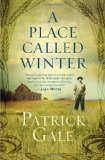Summary | Excerpt | Reviews | Beyond the Book | Readalikes | Genres & Themes | Author Bio

"Sorry. You just reminded me of someone I used to know."
"Happy memories, I hope."
"Yes," Harry told him, surprised by a memory of lying on a narrow bed, listening to the sounds of a Jermyn Street afternoon through an open window. "From this distance, I believe they are."
"So. Deep breaths. That's it. Relax. And keep your eyes on the river. Find a point in its middle, where the current is strong. Imagine the current is flowing through you. It's sweeping through your mind, sweeping all thoughts away. Your mind is just a chamber. An empty chamber, quite white, utterly peaceful. There are no rules here. You can speak your thoughts and nobody will know. Nobody will judge you. Do you understand?"
"Yes."
"Good. Harry?"
"Yes?"
"Tell me who you love."
STRAWBERRY VALE
England has always been disinclined to accept human nature.
E. M. Forster, Maurice
Chapter Two
Harry Cane's father had died of boredom. The medical diagnosis had been apoplexy, its unofficial translation a surfeit of rich foods and alcohol. The root cause, though, Harry felt sure, was leisure, and the boredom it engendered. Harry's father had in the past lived for work and had not known how to fill his time from the moment he sold his business and stepped sideways into the dubious luxury of idleness.
For most of his twenty-eight years, Harry's life had been largely, complacently male. And he had the good fortune not to have to work for a living. His father had done very well setting up one of the first horse-drawn omnibus services south of the river, which he had expanded to a small empire serving four busy routes, before he was one of the wily ones, along with Tilley's and Widow Birch, to sell out late to the LGOC.
Rich, and no longer tainted by direct contact with horse sweat and the streets, Cane Senior married for love, but wisely too. Her family's money was older, rinsed by time. They had met, before he was quite so wealthy, because it was dung purchased cheaply but in great quantity from Cane's stables in Greenwich, Brixton and Sydenham that enriched her father's fields and orchards in Kent. Her family disapproved, but not so very hard—she was the youngest of six and had both a stutter and a heart defect. When she died—of the heart—being delivered of Harry's younger brother Jack, it was found she had left her own money to Harry so that he might be raised a gentleman.
Some widowers took consolation in their children, but Harry and Jack's father discovered he could not bear to look upon his; they only reminded him of what he had won and lost. Jack was still a baby, of course, but at four, Harry was already his mother's child, with the same high brow and candid curiosity of expression. Neither child had a weak heart but Harry stuttered when nervous, just as his mother had, and, like all the men in her family, pronounced his Rs as Ws, which made it particularly irritating that he had not been christened Thomas or William.
Mr. Cane entrusted the boys to a wet nurse and nursery maid respectively and, as each turned five, to a bracing preparatory school on the Kent coast, where they boarded in the holidays as well as term time. He, meanwhile, pursued discreet consolation on the Continent. He was an assiduous, if stern, letter-writer and he sent presents at intervals: cricket bats, penknives and such.
Once Jack joined Harry at school, the brothers were devoted to one another, and protective. They were in effect a family of two, and were by no means objects of pity. Each had classmates whose parents had sent them "home" from brief, idyllically filthy infancies in India or Africa for the indefinite future, concern that they should grow up English trumping any weak parental pangs.
Excerpted from A Place Called Winter by Patrick Gale. Copyright © 2016 by Patrick Gale. Excerpted by permission of Grand Central Publishing. All rights reserved. No part of this excerpt may be reproduced or reprinted without permission in writing from the publisher.
Your guide toexceptional books
BookBrowse seeks out and recommends the best in contemporary fiction and nonfiction—books that not only engage and entertain but also deepen our understanding of ourselves and the world around us.